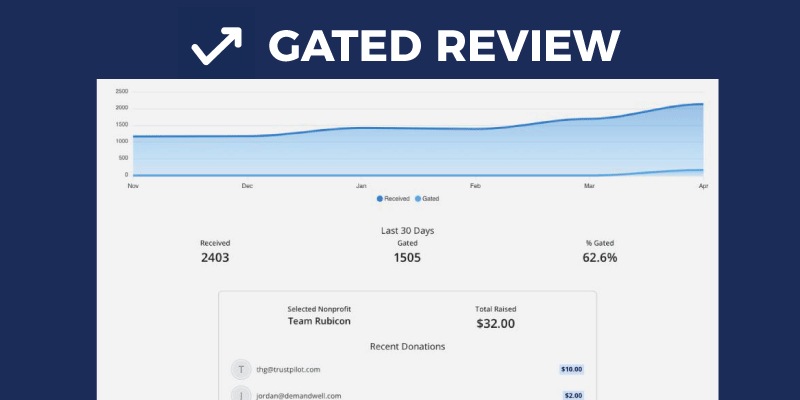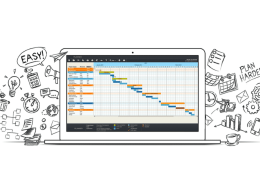Succeeding in business means being able to effectively plan, develop, and execute efforts and initiatives. This is what professional project managers excel at. They are specifically hired to oversee projects and programs to ensure they are successful. Project management requires a large set of skills and the ability to use all of them expertly.
In a PMI paper by Michael Leser, he compares a project manager to a quarterback. Essentially, the project manager (PM) is the leader (quarterback) of the team. The company or project stakeholders (coaches) expect the PM (quarterback) to be a consummate professional in running projects (the team), as well as having vast expertise in whatever subject the project or program (football) pertains to. The team members expect these things, but they also expect the PM to effectively manage the activities (plays) of the project (the game) and any issues that may come up (audibles). A very tall order indeed!
6 Project Management Skills You Need in 2023
Project managers must possess many skills they call upon daily to effectively manage their projects. Whether you’re trying to understand project management, build a resume, or develop new PM skills, it’s impossible to list them all. So, which ones should you focus on, then?
We’ll answer that question by explaining the most useful and in-demand PM skills and how to develop them. These are the top six skills that allow PMs to be successful when managing just about any project:
1. Project planning
Planning is the most basic, but very important skill a project manager must master. The project plan sets the foundation for every project. It defines all the business objectives of a project, the processes, the resources, and the timelines necessary to meet the goals of the project.
A solid project plan is key to any project. If you can create an effective one, then you’re probably already a great project manager. The more you plan, the more you succeed—and research has proven this correlation.
How to develop your project planning skills?
- Study the project planning process. You need to understand the planning process, as it relates to projects, inside and out. The best way to learn something is by simply doing.
- Use an example project to work through as an exercise:
- Developing a website for a personal art business that sells paintings.
- Create an outline of what’s necessary to bring the project to completion, with all the tasks required.
- Identify potential risks that might occur and how to mitigate them (project risk management).
- Build a thorough estimate of the resources, money, and time needed to complete the project (project estimation).
- If you can do these things, then you will have a more in-depth understanding of the project planning process.
- Once you have gathered all of the above information, you need to organize it in a way that is easy to read and uses metrics to show time and money expenditures.
- A PM must have great presentation skills since you will need to present your project plan to stakeholders.
- Creating a document that clarifies what you’ve come up with, in a clear and concise manner, will help you to develop this skill.
- Prioritizing Your Projects Methodically
2. Prioritizing Your Projects Methodically

Project management is a well-developed field and there are a number of approaches for managing projects. Project methodologies provide different frameworks for organizing and managing projects. Choosing a particular methodology for a project will allow you to assess the information and make choices regarding what’s next and what needs to be done.
You should select a methodology that best matches the type of project you’re working on, as well as one that suits the resources being used to complete the project. Below, we’ll talk about some major methodologies and give you an exercise to help you develop your skills in matching them with different projects.
How to grasp project management methodologies?
- This article is not intended to be a complete discussion of all the project management methodologies (PMM). There are plenty of discussions out there on the numerous project management methodologies, so we’ll just give you a taste of the three most popular ones you can use to complete an exercise that will help you better understand them.
- Waterfall project management is the simplest form of managing a project. It defines the project as discrete, sequential tasks, with each new task beginning only when the previous one has been completed. The Waterfall method is the most traditional methodology, with team members working linearly to accomplish each task and/or goal.
Every project resource has a specific role and tasks. The Waterfall methodology does not handle changes well and is best used for projects with long, detailed plans, and a single timeline.
- Agile project management is an iterative approach to completing a project over its life cycle. Agile projects are composed of several iterations (sprints) or incremental steps to complete the project. This type of approach is frequently used in software development to focus on velocity and flexibility since you can adjust as you go along rather than following a linear path.
- Kanban is similar to Agile, but it has its origins in lean manufacturing, and it has been widely adopted by many industries. It is designed to adjust to existing roles and team structures by categorizing tasks on a Kanban board according to what production phase they are in (To-Do, In Progress, and Complete).
- Scrum project management methodology is used for organizing and managing the moving parts of a project. It is used by many companies and project managers across all disciplines. Scrum is best for smaller teams working on projects with fluid deliverables, unknown solutions, and lots of collaboration with clients or end-users. It is also known for delivering functional products faster and with more frequency.
- As we noted before, the best way to become proficient with anything is to work through an exercise. In this case, apply your knowledge of the project management methodologies to determine which one would work best for the following example.
- Let’s say you are responsible for running a project to create a new payment system for a big company. This is a pretty typical software development project example.
- Create an example project plan (high level) for this. Using the Waterfall method is the simplest, but, if you are very familiar with the Waterfall methodology, then you may want to practice with an Agile or Lean methodology.
- Review the different frameworks and try to recreate the same project with a different framework. Compare and contrast your results. How are they similar? How are they different?
- For this hypothetical project, which methodology would work best? This, of course, depends upon the requirements and assumptions you made in creating your example. This also depends on what type of organizational constraints you have. There is not necessarily a right or wrong answer, just different shades of “better.”
3. Project Management Software
The time of using spreadsheets and manually creating project schedules are long gone. Project management software has been around for quite a while and has progressed significantly in the last 10 to 20 years.
As a project management professional, it’s no longer enough to be familiar with Microsoft Project. There are now many new cloud-based solutions for PM. As you learned in your study of the newer project management methodologies, speed is of the essence. A PM must be able to assimilate, translate, and communicate large amounts of information very quickly. Project management software helps you do this.
Becoming proficient with project management software
- As a professional PM, you should definitely be at least familiar with many of the project management software offerings available.
Just a few, for example, are:
- monday.com: An all-in-one work management solution that covers almost everything you can think of when it comes to daily tasks, managing clients, working with projects, automations, etc. They offer a strong suite of integrations as well. Check out our detailed monday.com review to learn more about its offerings.
- Zoho Projects: An overall choice for best PM software that has many features such as the creation of milestones and viewing insights from the Gantt view, Kanban boards, company feed, team chat, forums, and more.
- Wrike: A great free PM application with a timeline maker, Gantt charts with resource management, robust built-in collaboration tools (chat, live streams), workflow automation, and many extensions to connect with third-party applications.
- Jira: Another comprehensive PM software with an outstanding interface. It is especially adept with the Agile and Scrum methodologies and large complex projects with built-in bug and issue tracking.
Most of the online PM software tools provide either free trials or completely free versions. To build your familiarity with online PM applications, you should try creating a sample project, perhaps the example we outlined in the previous section, or a project you’re working on, and try the different software features available.
Work through all the basic steps of creating a project including tasks, milestones, issues, Gantt charts, and reports. Experiment with the features they offer. Using the “Free Trial” may limit the functionality you can use, but you should be able to get a good sense of the ins and outs of the software.
4. Organization

One of the key skills that a project manager brings to the table is organization. Whether you call it being detail-oriented, meticulous, or thorough, a great PM has this ability in spades!
It’s the PM’s role to keep all the tasks and activities associated with a project well managed and under control. This includes not only scheduling resources but creating plans that clearly organize and schedule out how all the various resources and tasks will be completed within a well-defined schedule and budget.
Becoming an effective organizer
- As an exercise to flex your organizational muscles, create a calendar and include clear goals and objectives for each day and each task.
- You should start out at a high level, maybe monthly (depending on how long the total project is), and then drill down to weeks and days. If you have a very complex project, then you may even go down to an hourly level.
- As you create your calendar, you are developing a detailed schedule for accomplishing your goals and tasks. This is heavily dependent upon the resources needed, and this is where your estimating ability comes into play.
- You have to know how long each task will take (duration) in order to schedule it and plan for the subsequent tasks.
5. Communication
Probably the single most important skill you must possess as a project manager is the ability to communicate extremely well. This is paramount because you’ll be leading resources, and all of them may or may not report directly to you. Managing people is a directly related skill but quite different. In a direct management position, you have direct authority to tell people what to do. In an indirect leadership (matrix) role, you will not have this hierarchical authority. Therefore, being able to communicate and motivate people are even more important.
Not only do you have to communicate downward to assign tasks and give direction, but you must also be able to communicate upward to managers and key stakeholders. They are your bosses, and you must be able to work closely with them and have a clear understanding of their expectations. Otherwise, your project is doomed.
Becoming an effective communicator
- There is no substitute for effective listening skills. If I fail to listen to your customers and stakeholders, then how can you be sure you know what the project objectives are? The answer is that you don’t! Simply put, make a conscious effort to listen to people closely and ask specific questions to clarify what is being said.
- One of the most difficult aspects of being a leader is giving constructive feedback to team members. PMs are in an especially challenging position for giving feedback, especially if they are in a matrixed role.
As we mentioned, you don’t have direct authority over the person, so your communication skills have to be extra sharp when it comes to delivering constructive feedback. Negative feedback has to be very clear and specific, with a defined path for improving performance.
6. Creativity

Resource management is a skill unto itself, but the skill or trait we are going to talk about here is your creativity. You may also hear this referred to as being innovative. A PM must be able to deal with constantly changing conditions and leverage creative thinking to resolve issues and work around challenges.
One of the most typical challenges is limited resources. If you are working towards a predefined and hard deadline (which is also typical with many projects) and one of your key resources suddenly becomes unavailable at a crucial time, how do you overcome this? This is where creativity comes in.
Developing your project management creativity
- An astute PM may counter the above example by citing you should have covered resource unavailability in your risk identification and mitigation plans. Touché. Valid point. But let’s consider the unknown unknowns in a project. You cannot plan for these! Think about some examples of these you have encountered in the past. What did you do?
- For the resource unavailability problem, you may be able to reschedule tasks, find another resource, or can you change the tasks substantially to leverage a different resource(s)? These can be some ideas that represent creative thinking on the part of the PM. Can you think of some examples of this in your past?
- Another example might be a project where your requirements are suddenly changed significantly and no longer fit the resources or schedule originally defined. Unfortunately, this also happens. Traditionally, this could be handled through change management and renegotiation of the project parameters. But, if the project can be reworked with the existing resources to meet the new requirements and perhaps even with the existing timeline. This is an extreme example of creative resource planning, but this is what great PMs can do.
- A more concrete example might be increasing the sales on a small web store from $1,500 per month to $2,500 per month, with only $1,000 to spend on advertising and two team members. Formulate some ways of achieving that goal using the resources at hand. Make up whatever numbers you need to complete the exercise.
How to Highlight Project Management Skills on Your Resume?
Having the right PM skills is only half the battle in getting that great project or PM job. If you can’t show you have the skills, then it stands to reason that a potential client or hiring manager won’t know how skilled you are. It’s crucial to build your project manager resume and include experience, education, and training that clearly document your skills. Let’s dive into what you need to do to create or update your resume to best showcase your outstanding PM skills.
Highlighting project management skills on your resume with metrics
As with any business endeavor, results speak for themselves, and you have to be able to show your achievements with measurable results. Numbers—or metrics—allow employers to see the tangible results you’ve created with your project management skills. Keep your descriptions short and to the point, and make sure to focus on the numbers. Below are a few examples of tangible PM results:
- Led major program to re-engineer network infrastructure leveraging matrixed teams and DevOps methodology to complete all projects 15% under budget and 8% ahead of schedule, saving the company over $1,000,000
- Redesigned company’s payment system with Agile methodology and Wrike software, saving 15% on expenses and delivering completed website 2 months ahead of schedule
- Designed, developed, and implemented Kanban methodology for new PMO structure that reduced project turnaround time by 10%, improved project success rates by 25%, and saved the company over $250,000 annually in capital expenditures
- Oversaw the creation and coaching of 24 scalable processes as the company grew from $90 million to $260 million in annual revenues
Highlighting specific project management skills on your resume
As we discussed earlier, PMs can have a plethora of skills, especially highly experienced PMs. When working on your career docs, stick to listing 6 to 10 skills on your resume. Look to the project management job description as a clue to what is most relevant for the job you’re seeking.
This is best practice for any resume, but it’s especially important for a highly skilled and experienced PM. Most people just write up one resume and let it fly for any job for which they apply. This may work for some, but if you’re seeking that really great PM job, then you have to put in the work and customize your resume to the role.
Study your target job description carefully and make note of any keywords or phrases that tie directly to project management skills or experiences. Use those things to frame your job description bullet points and achievements on your resume. Keep your descriptions concise and focused on the PM skills, making sure to include the tangible results. When listing your skills, you can even organize them in sections. For example:
- Project management software: MS Project, Jira, Monday, Smartsheet, Zoho.
- Project management: Risk assessment/mitigation, stakeholder management, planning, cost estimation, resource management, scheduling, reporting.
- General skills: MS Office, budgeting, executive communication, team management.
Put Your Project Management Skills into Practice
Being a successful PM takes experience, knowledge, and skills. But having successful projects in your past does not guarantee positive results in the future. You must continue to build and hone your skills.
Not only that, you need to demonstrate those skills either by taking on projects that leverage those skills or by obtaining professional certifications. By developing your skills and applying your efforts toward the most in-demand PM skills, you’ll advance your career and land the best projects!


















